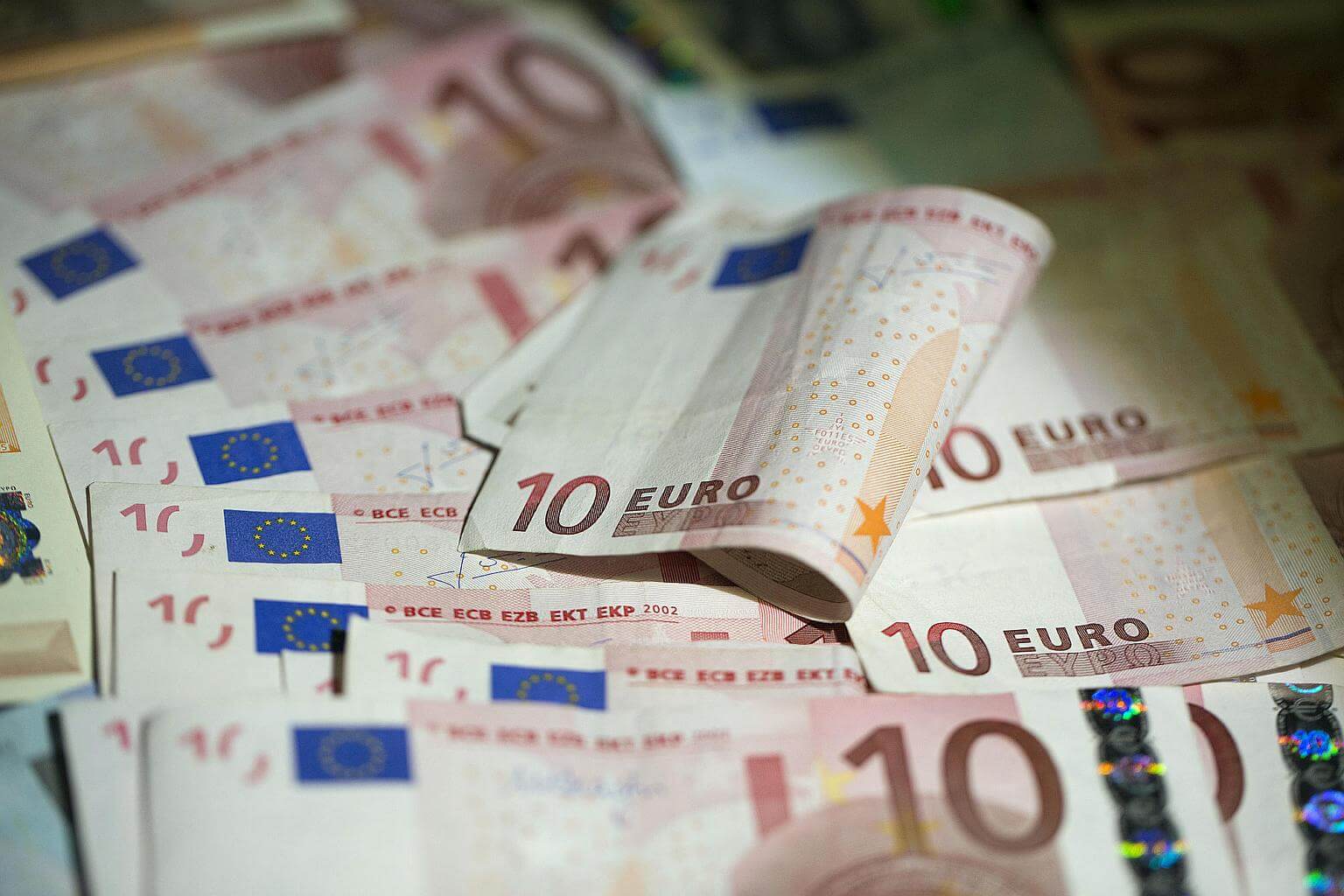Euro crashes to 20-month lows in Asia after Italian PM quits in the wake of referendum defeat
Sign up now: Get ST's newsletters delivered to your inbox

The euro sank in Asia after Italian Prime Minister Matteo Renzi said he would resign.
PHOTO: BLOOMBERG
Follow topic:
SYDNEY (REUTERS) - The euro sank to 20-months lows in Asia on Monday (Dec 5) after Italian Prime Minister Matteo Renzi said he would resign in the wake of a stinging defeat on constitutional reform that could destabilise the country's shaky banking system.
The single currency dived as far as US$1.0505 in thin trade, after starting around US$1.0645 earlier. It was the sharpest fall since June and opened the way to a retest of the March 2015 trough around US$1.0457.
The single currency also slid 1.6 per cent against the safe-haven yen to reach 118.63. The US dollar was underpinned by expectations of a US rate rise this month and held its ground on the yen at 113.10.
Dealers said Italian bonds were set to come under pressure as top-rated US Treasuries and German bunds gained. Futures for US 10-year Treasury notes rose.
MSCI's broadest index of Asia-Pacific shares outside Japan eased 0.2 per cent, while E-mini futures for the S&P 500 lost 0.4 per cent.
Investors and Europe's politicians fear victory for the opposition "No" camp could cause political instability and renewed turmoil for Italy's banks, pushing the euro zone towards a fresh crisis.
Ultimately, the danger is that Italy holds a vote on whether to leave the euro, possibly triggering a break-up of the entire bloc.
Analysts at RBCCM argued that, based on what happened in 2012 at the height of the Greek crisis, such a risk could see the euro trade as low as US$0.8000. "It may sound extreme, but if a second euro zone crisis were to hit, with the US dollar at a much stronger starting point, EUR/USD could arguably trade lower still," they wrote.
Markets had earlier taken some encouragement when Austria's far-right presidential candidate was soundly defeated by a pro-European contender, confounding forecasts of a tight election.
The European Central Bank also meets Thursday amid much speculation it will announce a six month extension of its asset buying programme and widen the type of bonds it can purchase. "There has been some speculation that the ECB would step and front load purchases of Italian bonds if markets became unsettled by a 'No' result, so perhaps it is the thoughts of a central bank liquidity sugar pill driving things again," said ANZ economist Jo Masters.
OIL PULLS BACK
Wall Street had ended last week on a cautious note, with the Dow off 0.11 per cent, while the S&P 500 rose 0.04 per cent and the Nasdaq gained 0.09 per cent.
While Friday's US payroll report was firm enough to cement expectations of a rate hike by the Federal Reserve this month, a surprise pullback in wages helped bonds pare a little of their recent losses.
In commodity markets, oil ran into profit-taking after boasting its best week in at least five years following Opec's decision to cut crude output.
Markets are now focused on the implementation and impact of Opec's first output cuts since 2008, to be joined by Russia and possibly other non-Opec producers.
Brent crude was down 31 cents at US$54.15 a barrel, while US crude lost 26 cents to US$51.42.

